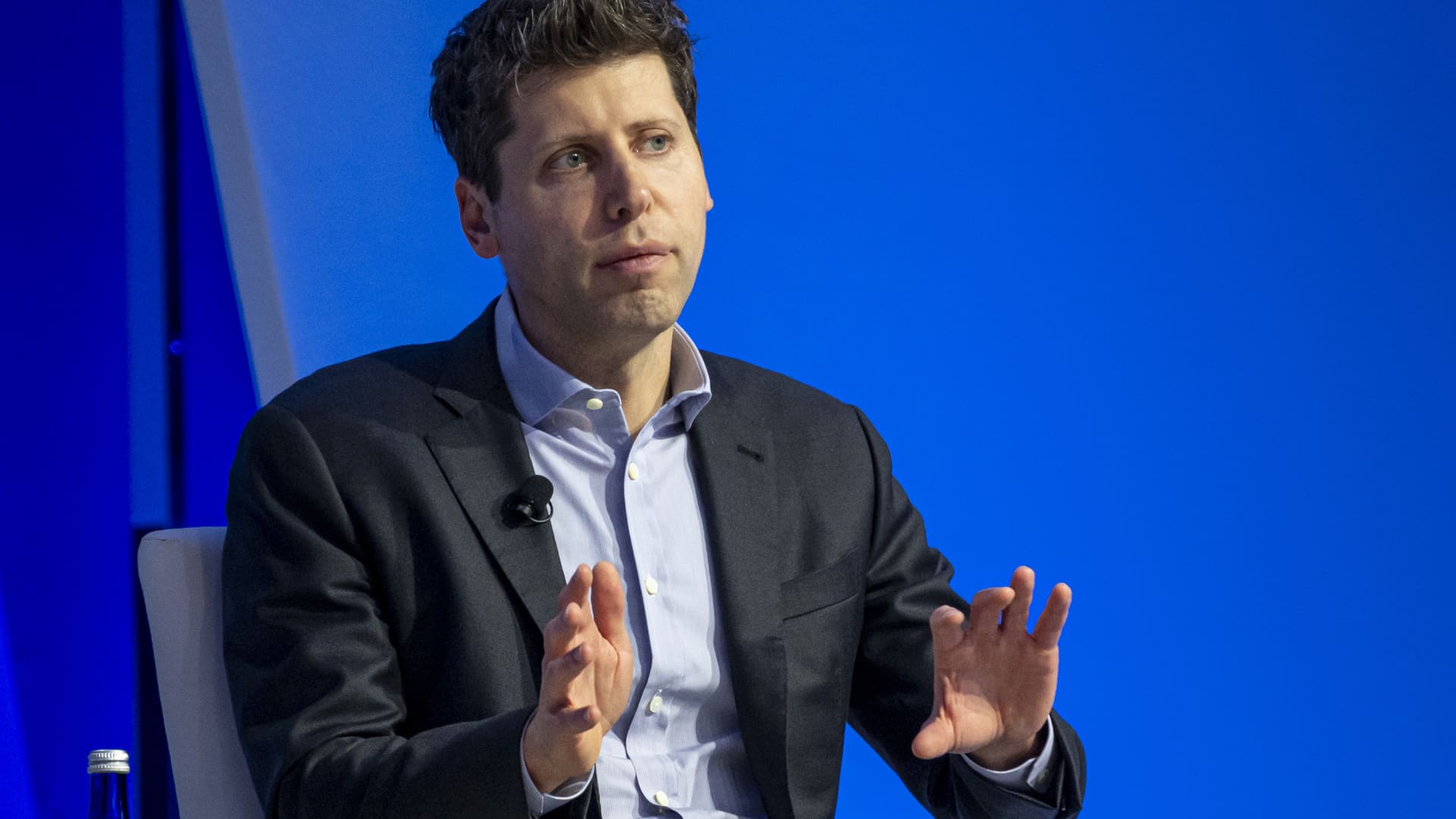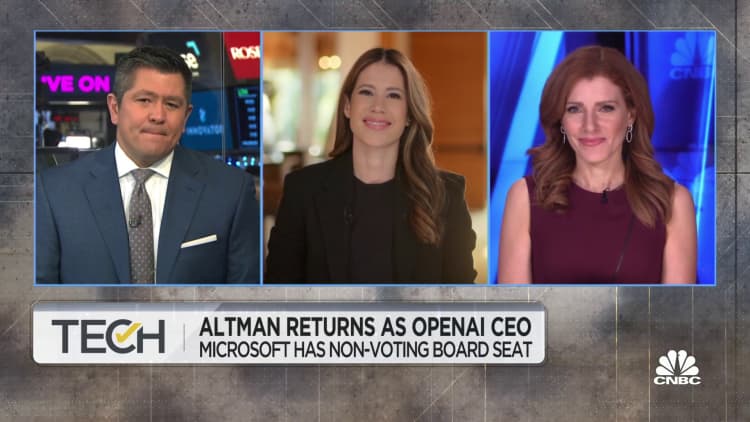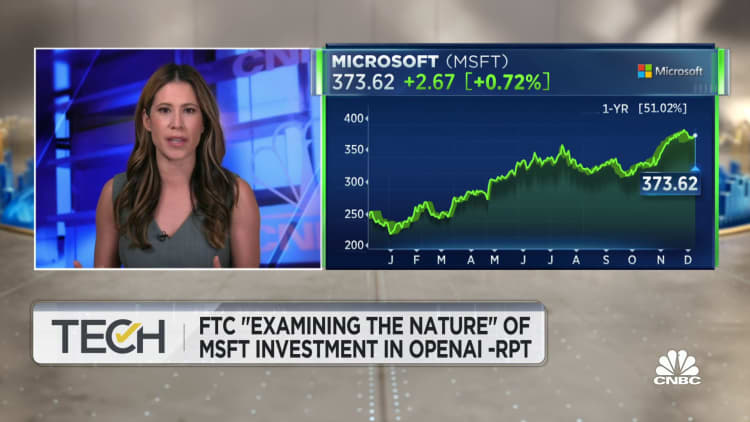
Sam Altman, CEO of OpenAI, during the Asia-Pacific Economic Cooperation CEO Summit in San Francisco on Nov. 16, 2023.
David Paul Morris | Bloomberg | Getty Images
OpenAI is valued by private investors at $86 billion, due in part to the popularity of ChatGPT. But if you’re looking for a revenue figure for the red-hot artificial intelligence startup, the latest official number you’ll find is the tiny sum of $44,485 for last year.
That’s from the nonprofit parent’s 990 filing with the Internal Revenue Service, a form that has to be filled out by organizations wishing to maintain their tax-exempt status. OpenAI shared the document with CNBC, and the website PlainSite published the filing last week.
Federal standards don’t require audited financial statements from nonprofits. In its home state of California, OpenAI was able to avoid submitting audited financials for 2022 because the foundation’s stated revenue was below the $2 million reporting threshold. The last time OpenAI filed with the state was 2017, when revenue was $33.2 million, or more than 700 times what the foundation reported for 2022.
For all its talk of openness, OpenAI’s financials remain a black box. Created as a nonprofit in 2015, OpenAI launched a so-called capped-profit entity in 2019, enabling it to raise billions of dollars in outside funding and attain attributes of a tech startup, such as the ability to hand out equity to employees. The for-profit side of the house went on to develop ChatGPT, the chatbot that took the world by storm late last year and kicked off the generative AI boom.
The Information reported in August that OpenAI generated $28 million in revenue last year and will likely approach $1 billion in 2023, reflecting the surge in popularity for ChatGPT and enhancements to OpenAI’s models.
OpenAI’s latest IRS filing adds to the confusion that surfaced last month, when the nonprofit’s board, which oversees the entire entity, abruptly fired CEO Sam Altman, explaining in a blog post that it “no longer has confidence” in Altman’s ability to lead, and that “we believe new leadership is necessary as we move forward.” Reports quickly surfaced that the board was angry about Altman’s push to bring commercial products to market despite safety concerns at a nonprofit that was designed “with the goal of building safe and beneficial artificial general intelligence for the benefit of humanity.”

Just days later, Altman was back at the helm after employees threatened a mass exodus and major investors worked to reverse the board’s move. Altman said on X, formerly known as Twitter, that “there were real misunderstandings between me and members of the board.” Concurrent with his reinstatement, Helen Toner, Tasha McCauley and co-founder Ilya Sutskever were removed as board members.
The chaos has called into question whether OpenAI can or should continue under the umbrella of a nonprofit.
Thad Calabrese, a professor of public and nonprofit financial management at New York University, said OpenAI’s current status is confusing, and is unlike anything he has seen in the nonprofit world. He said OpenAI could give up its nonprofit status, and he cited the Blue Cross Blue Shield Association, which in 1994 allowed associated nonprofit medical insurance plans to switch into for-profit entities.
“There’s no real need to have the nonprofit,” Calabrese said. “If you want to be a startup, be a startup.”
Regarding OpenAI’s reporting with the IRS, he said “fundamentally you can’t really get a holistic sense of these organizations when you don’t have consolidated financial statements.”
An OpenAI spokesperson didn’t respond to a question about whether the organization is considering giving up its nonprofit status. He said OpenAI has always complied with California’s filing requirements.
The nonprofit model isn’t entirely foreign to the tech industry. The Mozilla Foundation is the parent entity of the Mozilla Corporation, whose products include the Firefox browser. Unlike OpenAI, Mozilla never raised money from venture and corporate investors, who expect returns on their investments. The corporation reinvests the majority of its revenue into product development and sets some aside for the nonprofit’s programs.
Each year, the Mozilla Foundation posts an updated 990 document on its website, along with an audited financial statement and a more thorough annual report. Mark Surman, president of the Mozilla Foundation, said OpenAI needs to figure out which direction it wants to take.
“I don’t know at this point that this is a regulatory oversight issue. I think this is a public trust issue,” Surman said in an interview. “If they want to be seen as this public institution making sure AI is in the service of humanity, we need a lot more transparency. We need to know what’s going on.”
Meanwhile, an active tender offer enabling OpenAI employees to sell their shares will value the startup at $86 billion, CNBC reported last week. The company has raised billions of dollars from investors, principally Microsoft, to pay for cloud services and hire the talent needed to develop its capital-intensive large language models.
It’s a very different picture from the 990 filing, which showed $1.3 million in expenses at the nonprofit last year, including about $400,000 in grants, mainly to fund Duke University research. The filing also mentioned seven achievements in 2022, most notably ChatGPT and the DALL-E 2 tool for generating images from words.
“Each of the Organization’s related organizations is legally bound to pursue the Organization’s mission, such as following uncompromised principles of safety and broad benefit in its research and deployment efforts, unencumbered by profit incentives,” OpenAI said in the filing.
Following Altman’s return last month, OpenAI committed to enhancing its governance structure, though it hasn’t offered specific changes that are coming. Current board chair and former Salesforce co-CEO Bret Taylor said in a statement Friday that “the Board will continue to take steps to strengthen OpenAI’s corporate governance, build a qualified and diverse board of exceptional individuals, and oversee OpenAI’s important mission in ensuring that artificial general intelligence benefits all of humanity.”
Read the 990 filing here:

Don’t miss these stories from CNBC PRO:
